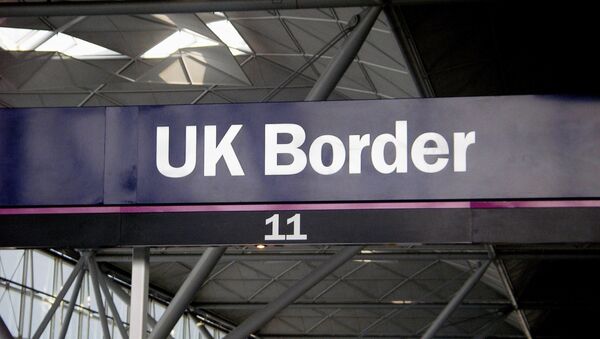Checks on EU goods entering the UK will be phased in next year, the government has announced, as London has formally rejected an extension of the Brexit transition period beyond 31 December.
Industry leaders have welcomed the government’s three-phased plan for Brexit border checks, although the changes are the most significant the country has seen since the single market was first introduced in 1993, according to the Guardian.
The UK had originally committed to introducing full import controls on EU goods in January, but concerns over the economic impact of the coronavirus pandemic led the government to backtrack. Under the phased plan, firms are now able to defer customs forms and tariff payments for six months and some physical checks will be delayed till July 2021.
The Cabinet Office said this “flexible and pragmatic approach” will give industry extra time to make necessary arrangements.
After informing the EU of the UK’s plans to press ahead with exiting the customs union and the single market on 31 December, Cabinet Office Minister Michael Gove said, “Today’s announcement is an important step towards getting the country ready for the end of the transition period.”
“At the end of this year we will control our own laws and borders which is why we are able to take the sovereign decision to introduce arrangements in a way that gives businesses impacted by coronavirus time to adjust,” Gove said.
I just chaired a constructive EU Joint Committee meeting with @MarosSefcovic
— Michael Gove (@michaelgove) June 12, 2020
I formally confirmed the UK will not extend the transition period & the moment for extension has now passed. On 1 January 2021 we will take back control and regain our political & economic independence pic.twitter.com/nZjNpez8LI
The government’s revised plan involves a phased implementation of controls in January, April and July next year.
From 1 January full custom checks will be imposed on “controlled goods” such as tobacco and alcohol. However, traders importing “standard goods”, covering everything from clothes to electronics, will need to prepare for basic customs requirements, such as keeping sufficient records of imported goods, and will have up to six months to complete customs declarations.
From 1 April those importing animal products such as meat, pet food, honey, milk or egg products, and regulated plant products will need to pre-notify officials and provide the relevant health paperwork.
From 1 July traders moving all goods will have to make declarations at the point of importation and pay relevant tariffs. From this point, there will also be an increase in physical checks on livestock, plants and other sanitary and phytosanitary products at ports and other entry points.
New border facilities will be built in order to process the required checks either at ports, or where there is not enough space at “inland sites”. The government is consulting with ports across the UK to agree on what infrastructure is required.
These proposals only apply to rules on imports with checks on exports to the EU being overseen by Brussels. This approach does not apply to the flow of trade between Northern Ireland and Ireland, or between Northern Ireland and the UK which is covered by the Withdrawal Agreement.
Elizabeth de Jong, Policy Director at the Freight Transport Association, welcomed these new proposals.
“The logistics industry is extremely grateful for the measures announced by the UK government to stage the introduction of new trading arrangements between the EU and UK in the first six months after the Transition Period,” she said.
The Road Haulage Association, a vocal critic of the government’s hardline approach to Brexit in the past, also welcomed the announcement.




